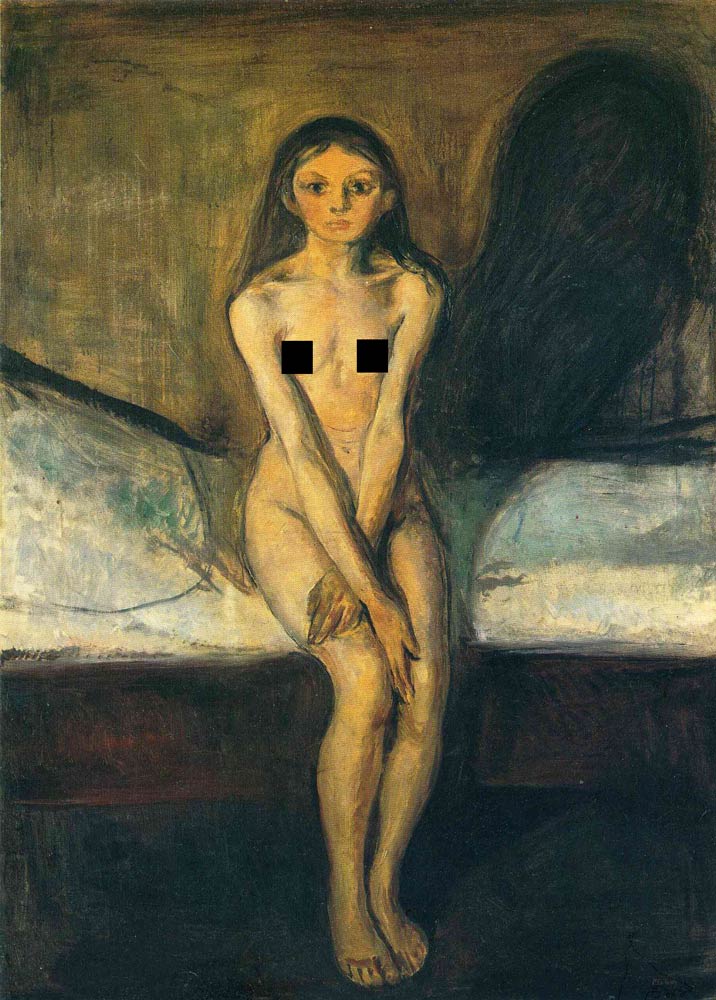| Puberty | |
|---|---|
 |
|
| Artist | Edvard Munch |
| Year | 1894–5 |
| Medium | Oil on canvas |
| Location | National Gallery, Oslo |
| Dimensions | 59⅝ in × 43⅜ in |
| 151.5 cm × 110 cm | |
| Famous Paintings by Edvard Munch | |
| The Scream | |
| The Sick Child | |
| Death in the Sickroom | |
| The Dance of Life | |
| Madonna | |
| Vampire | |
| Anxiety | |
| Ashes | |
| Puberty | |
| Complete Works |
Puberty is a painting by artist Edvard Munch. It was created between 1894 and 1895. It follows his general impressionistic style. It was created near the end of his “puberty” period of work.
History and Background
At the center of the painting is a young girl. She is of about the age of puberty. There is speculation that Edvard used a model for the girl. Part of the reasoning behind this thought is the amount of detail in the collar bone area suggesting he had a live model to paint from.
Towards the latter end of the 1880’s and on into the middle of the 1890’s, Edvard created a series of pieces referred to as his “Puberty” period. This was one of them. He was in his mid-twenties during this period. This painting is considered to be the spark that led to the increase in the expression of his personal feelings in his artwork.
An interesting fact about this painting is that it is a duplicate of an earlier work. The original was destroyed earlier in a fire.
Reception and Interpretation
The girl at the center of the painting provides a strong focus. She is of about the age of puberty and she is naked sitting on the edge of a bed. She is in a shy pose with her legs closed and her hands are modestly in her lap. Many observers find that the image is of sexual repression. This would mirror Edvard’s own sexual repression during this period.
Another strong point of discussion is that shadow that the girl is casting. Many people refer to it as indicating genitalia. Some see it as male genitalia while others see it as female. With the strong sexual interpretations there has been no shortage of controversy with this painting. Speculation has included the model, the exact meaning of this painting, and the details of the creation of it.